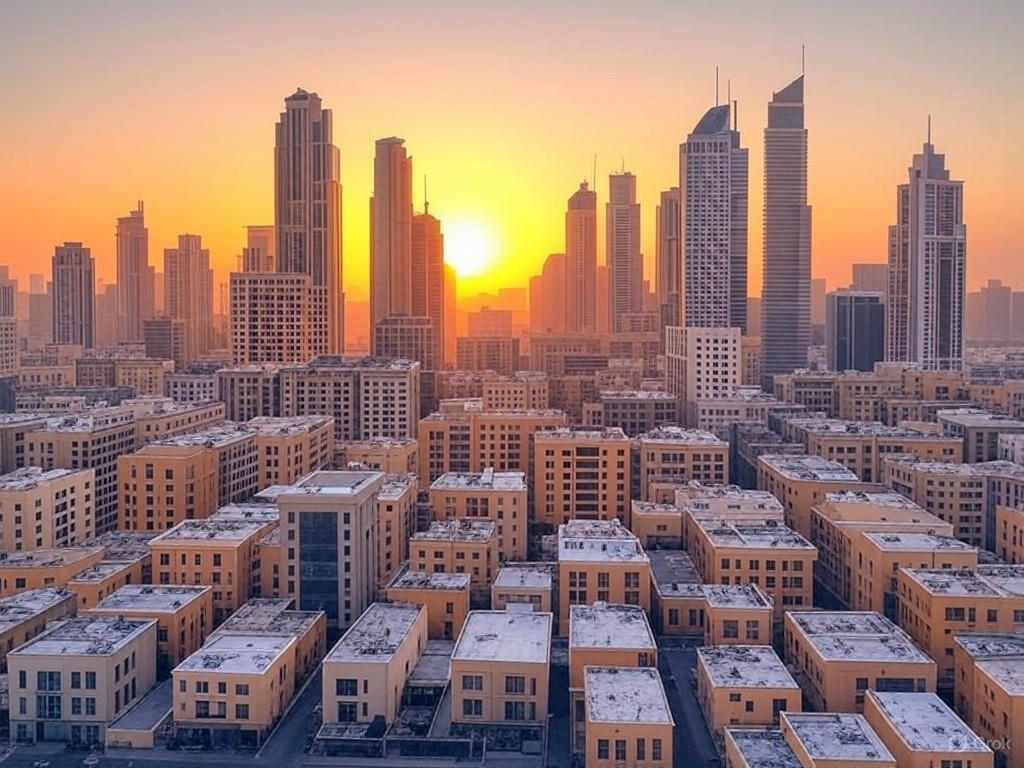
Middle East Crisis: Israel Approves Gaza Operations Intensification
As tensions in the Middle East continue to mount, Israel intensifies Gaza operations with a new military plan amid the ongoing crisis, marking a pivotal shift in regional dynamics. This strategic escalation, approved by Israel’s cabinet, aims to reclaim full control of the Gaza Strip and dismantle militant infrastructure, raising alarms about potential humanitarian fallout. It’s a move that’s drawing global attention, and you might be wondering how it fits into the broader tapestry of conflicts in the region.
How the Gaza Conflict Has Evolved Over Time
The roots of the Gaza conflict run deep, with cycles of violence shaping the lives of millions. For over a decade and a half, flare-ups like Operation Cast Lead in 2008-2009 and Operation Protective Edge in 2014 have involved intense air strikes and ground incursions, leading to devastating losses on both sides.
Imagine living in a place where rocket fire and retaliatory strikes become routine—it’s a reality for many in Gaza. Israel intensifies Gaza operations with new military plans amid the Middle East crisis as a response to persistent threats, such as rocket attacks from Palestinian factions. Yet, these actions often stem from years of blockade and escalating tensions, creating a cycle that’s hard to break and leaving civilians caught in the crossfire.
Key Historical Flashpoints and Their Lasting Impact
Each major operation, like the 2012 Operation Pillar of Defense, has left scars on infrastructure and communities. Israel’s approach typically focuses on neutralizing threats while Palestinian groups frame their resistance as a fight against occupation. This ongoing back-and-forth not only fuels humanitarian crises but also complicates international efforts for lasting peace—have you ever stopped to think about how these patterns repeat and what that means for future generations?
To put it in perspective, a study from the Sustainable Development Goals report highlights how such conflicts hinder access to basic services, perpetuating poverty and instability. As Israel intensifies Gaza operations, it’s crucial to remember that every escalation adds layers to this complex narrative.
Breaking Down Israel’s Latest Military Strategy
Israel intensifies Gaza operations with a new military plan amid the Middle East crisis, as evidenced by the cabinet’s recent approval on May 5, 2025. This “conquest” plan shifts from sporadic strikes to a full-scale effort, blending air raids with ground maneuvers to target armed groups and secure territorial control.
Government Decisions and Their Strategic Goals
The decision underscores a bold intent to weaken militant capabilities once and for all. According to reports from France24, this involves coordinated attacks on key infrastructure, aiming to disrupt operations that have long threatened Israeli security. But what does this mean for everyday people in Gaza? It’s a question that’s prompting debates worldwide, as intensified efforts could lead to more displacement and destruction.
For instance, think about a family in Gaza facing yet another evacuation—how would you cope? Israel’s strategy isn’t just about military gains; it’s also about reshaping the security landscape, potentially deterring future attacks. By intensifying Gaza operations amid the Middle East crisis, leaders are betting on a decisive outcome, though history shows these moves often spark broader unrest.
Regional Ramifications of This Escalation
The ripple effects could extend far beyond borders, heightening risks of a humanitarian catastrophe. Past operations have shown that when Israel intensifies Gaza operations, civilian casualties rise, straining resources like water and healthcare. This isn’t just about numbers; it’s about real people, like aid workers racing to deliver supplies in war zones.
If you’re following global news, you might see how this intensifies the Middle East crisis, potentially drawing in neighboring countries or international alliances. Experts from sources like the U.S. Naval War College Review suggest that such actions could escalate into wider conflicts, making diplomacy even more urgent.
Exploring the Humanitarian and Political Layers
At the heart of this, the humanitarian toll is immense, with Gaza’s blockade worsening access to essentials like food and medicine. As Israel intensifies Gaza operations with new military plans amid the Middle East crisis, we’re reminded of issues like displacement and self-determination that have persisted for decades.
Legal scholars, as noted in a Columbia Law Review analysis, often link these dynamics to concepts like apartheid and the Nakba, framing them as systemic challenges. Have you considered how ongoing blockades affect children’s education or families’ daily lives? It’s a poignant reminder that behind the headlines are stories of resilience and survival.
The Fragile Balance of Human Rights and Security
International bodies frequently raise concerns over human rights violations during escalations. For example, a Veolia sustainability report touches on how conflicts disrupt essential services, amplifying the suffering. If we look ahead, actionable steps like supporting NGOs could help mitigate these impacts—perhaps by advocating for aid corridors or peace talks.
Israel’s efforts to intensify Gaza operations might aim for security, but they often exacerbate inequalities, making it essential for global citizens to stay informed and engaged.
What the Future Holds for the Middle East Crisis
Looking forward, as Israel intensifies Gaza operations with its new plan amid the Middle East crisis, the world watches for signs of de-escalation. Diplomatic channels could open up, with organizations like the UN pushing for ceasefires and negotiations to prevent further tragedy.
Consider a hypothetical scenario: What if key players brokered a deal focusing on economic aid and security guarantees? It could pave the way for stability, but achieving that requires balancing short-term actions with long-term strategies. Here’s a tip—if you’re passionate about this, follow updates from reliable sources and consider signing petitions for peace initiatives.
Global Responses and Pathways to Resolution
Reactions from countries like the US and EU are already shaping the discourse, with calls for restraint to avoid a full-blown regional war. A Swinburne University research paper emphasizes the need for inclusive dialogue, highlighting how past interventions have sometimes backfired.
By intensifying Gaza operations, Israel is testing the waters of international tolerance—what are your thoughts on how the global community should respond? Engaging in conversations like this can foster understanding and drive change.
Summing Up the Core Elements
- Israel’s cabinet greenlights a plan to intensify Gaza operations amid the Middle East crisis, focusing on full territorial control.
- This involves ramped-up air and ground activities to neutralize threats, drawing from historical precedents.
- The humanitarian fallout remains a major concern, with risks of increased casualties and displacement.
- Political contexts, including human rights issues, add complexity to the situation.
- Future outcomes hinge on diplomatic efforts, urging a balanced approach for sustainable peace.
In wrapping up, it’s clear that as Israel intensifies Gaza operations with new military plans amid the Middle East crisis, the stakes are incredibly high. We need to keep the conversation going—share your views in the comments below, explore more on our site about regional conflicts, or spread awareness to encourage dialogue. Let’s work towards understanding and resolution together.
References
- France24. (2025). Israel cabinet approves ‘conquest’ plan to recapture all Gaza. Retrieved from https://www.france24.com/en/middle-east/20250505-israel-cabinet-approves-conquest-plan-recapture-all-gaza-ministers-palestinians
- Greenberg, K. (n.d.). Thesis on regional conflicts. Swinburne University. Retrieved from https://researchbank.swinburne.edu.au/file/c61ff3ea-3fe8-4b6b-ac08-98164c39de0b/1/Keren_Greenberg_Thesis.pdf
- Columbia Law Review. (2024). Analysis of human rights in conflicts. Retrieved from https://www.columbialawreview.org/wp-content/uploads/2024/08/clr_124n4_issue_low.pdf
- United Nations. (n.d.). SDG Report on Israel. Retrieved from https://sustainabledevelopment.un.org/content/documents/23576ISRAEL_13191_SDGISRAEL.pdf
- FTSG. (2025). Report on global tensions. Retrieved from https://ftsg.com/wp-content/uploads/2025/03/FTSG_2025_TR_FINAL_LINKED.pdf
- Veolia. (2024). Sustainability Report. Retrieved from https://www.veolia.com/sites/g/files/dvc4206/files/document/2024/04/Finance_Veolia_URD_2023.pdf
- U.S. Naval War College. (2023). Review on strategic conflicts. Retrieved from https://digital-commons.usnwc.edu/context/nwc-review/article/8342/viewcontent/NWC_Review_Spring_2023_web.pdf
Israel intensifies Gaza operations with new military plan amid Middle East crisis, Israel Gaza operations, Middle East crisis, Israel military strategy, Gaza conflict, Israel cabinet decision, Palestinian tensions, humanitarian crisis in Gaza, regional security dynamics, international responses to conflict







